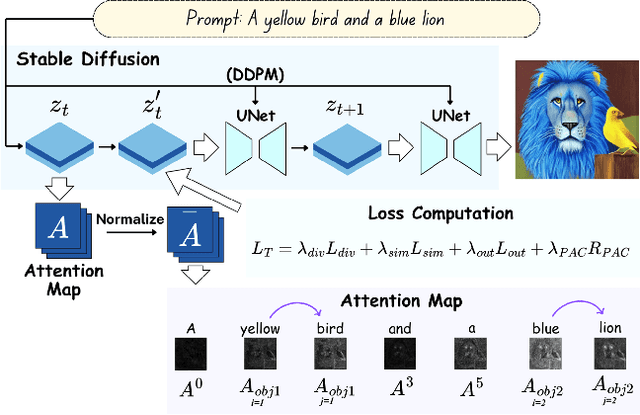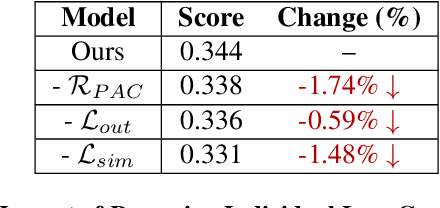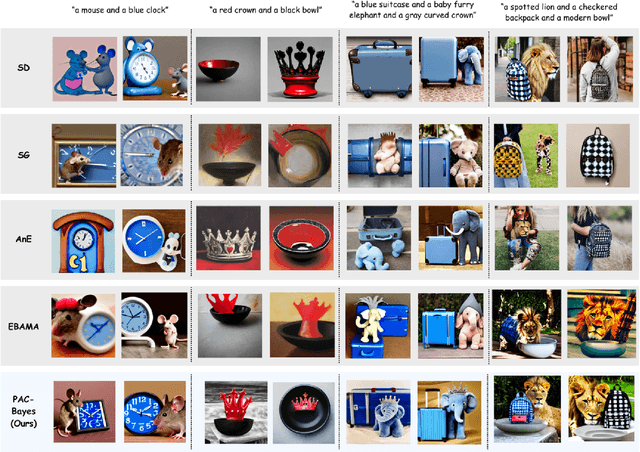Eric Hanchen Jiang
QuantEval: A Benchmark for Financial Quantitative Tasks in Large Language Models
Jan 13, 2026Abstract:Large Language Models (LLMs) have shown strong capabilities across many domains, yet their evaluation in financial quantitative tasks remains fragmented and mostly limited to knowledge-centric question answering. We introduce QuantEval, a benchmark that evaluates LLMs across three essential dimensions of quantitative finance: knowledge-based QA, quantitative mathematical reasoning, and quantitative strategy coding. Unlike prior financial benchmarks, QuantEval integrates a CTA-style backtesting framework that executes model-generated strategies and evaluates them using financial performance metrics, enabling a more realistic assessment of quantitative coding ability. We evaluate some state-of-the-art open-source and proprietary LLMs and observe substantial gaps to human experts, particularly in reasoning and strategy coding. Finally, we conduct large-scale supervised fine-tuning and reinforcement learning experiments on domain-aligned data, demonstrating consistent improvements. We hope QuantEval will facilitate research on LLMs' quantitative finance capabilities and accelerate their practical adoption in real-world trading workflows. We additionally release the full deterministic backtesting configuration (asset universe, cost model, and metric definitions) to ensure strict reproducibility.
Dynamic Generation of Multi-LLM Agents Communication Topologies with Graph Diffusion Models
Oct 09, 2025Abstract:The efficiency of multi-agent systems driven by large language models (LLMs) largely hinges on their communication topology. However, designing an optimal topology is a non-trivial challenge, as it requires balancing competing objectives such as task performance, communication cost, and robustness. Existing frameworks often rely on static or hand-crafted topologies, which inherently fail to adapt to diverse task requirements, leading to either excessive token consumption for simple problems or performance bottlenecks for complex ones. To address this challenge, we introduce a novel generative framework called \textit{Guided Topology Diffusion (GTD)}. Inspired by conditional discrete graph diffusion models, GTD formulates topology synthesis as an iterative construction process. At each step, the generation is steered by a lightweight proxy model that predicts multi-objective rewards (e.g., accuracy, utility, cost), enabling real-time, gradient-free optimization towards task-adaptive topologies. This iterative, guided synthesis process distinguishes GTD from single-step generative frameworks, enabling it to better navigate complex design trade-offs. We validated GTD across multiple benchmarks, and experiments show that this framework can generate highly task-adaptive, sparse, and efficient communication topologies, significantly outperforming existing methods in LLM agent collaboration.
aiXiv: A Next-Generation Open Access Ecosystem for Scientific Discovery Generated by AI Scientists
Aug 20, 2025Abstract:Recent advances in large language models (LLMs) have enabled AI agents to autonomously generate scientific proposals, conduct experiments, author papers, and perform peer reviews. Yet this flood of AI-generated research content collides with a fragmented and largely closed publication ecosystem. Traditional journals and conferences rely on human peer review, making them difficult to scale and often reluctant to accept AI-generated research content; existing preprint servers (e.g. arXiv) lack rigorous quality-control mechanisms. Consequently, a significant amount of high-quality AI-generated research lacks appropriate venues for dissemination, hindering its potential to advance scientific progress. To address these challenges, we introduce aiXiv, a next-generation open-access platform for human and AI scientists. Its multi-agent architecture allows research proposals and papers to be submitted, reviewed, and iteratively refined by both human and AI scientists. It also provides API and MCP interfaces that enable seamless integration of heterogeneous human and AI scientists, creating a scalable and extensible ecosystem for autonomous scientific discovery. Through extensive experiments, we demonstrate that aiXiv is a reliable and robust platform that significantly enhances the quality of AI-generated research proposals and papers after iterative revising and reviewing on aiXiv. Our work lays the groundwork for a next-generation open-access ecosystem for AI scientists, accelerating the publication and dissemination of high-quality AI-generated research content. Code is available at https://github.com/aixiv-org. Website is available at https://forms.gle/DxQgCtXFsJ4paMtn8.
Learning to Rank Chain-of-Thought: An Energy-Based Approach with Outcome Supervision
May 21, 2025Abstract:Mathematical reasoning presents a significant challenge for Large Language Models (LLMs), often requiring robust multi step logical consistency. While Chain of Thought (CoT) prompting elicits reasoning steps, it doesn't guarantee correctness, and improving reliability via extensive sampling is computationally costly. This paper introduces the Energy Outcome Reward Model (EORM), an effective, lightweight, post hoc verifier. EORM leverages Energy Based Models (EBMs) to simplify the training of reward models by learning to assign a scalar energy score to CoT solutions using only outcome labels, thereby avoiding detailed annotations. It achieves this by interpreting discriminator output logits as negative energies, effectively ranking candidates where lower energy is assigned to solutions leading to correct final outcomes implicitly favoring coherent reasoning. On mathematical benchmarks (GSM8k, MATH), EORM significantly improves final answer accuracy (e.g., with Llama 3 8B, achieving 90.7% on GSM8k and 63.7% on MATH). EORM effectively leverages a given pool of candidate solutions to match or exceed the performance of brute force sampling, thereby enhancing LLM reasoning outcome reliability through its streamlined post hoc verification process.
Seek in the Dark: Reasoning via Test-Time Instance-Level Policy Gradient in Latent Space
May 19, 2025Abstract:Reasoning ability, a core component of human intelligence, continues to pose a significant challenge for Large Language Models (LLMs) in the pursuit of AGI. Although model performance has improved under the training scaling law, significant challenges remain, particularly with respect to training algorithms, such as catastrophic forgetting, and the limited availability of novel training data. As an alternative, test-time scaling enhances reasoning performance by increasing test-time computation without parameter updating. Unlike prior methods in this paradigm focused on token space, we propose leveraging latent space for more effective reasoning and better adherence to the test-time scaling law. We introduce LatentSeek, a novel framework that enhances LLM reasoning through Test-Time Instance-level Adaptation (TTIA) within the model's latent space. Specifically, LatentSeek leverages policy gradient to iteratively update latent representations, guided by self-generated reward signals. LatentSeek is evaluated on a range of reasoning benchmarks, including GSM8K, MATH-500, and AIME2024, across multiple LLM architectures. Results show that LatentSeek consistently outperforms strong baselines, such as Chain-of-Thought prompting and fine-tuning-based methods. Furthermore, our analysis demonstrates that LatentSeek is highly efficient, typically converging within a few iterations for problems of average complexity, while also benefiting from additional iterations, thereby highlighting the potential of test-time scaling in the latent space. These findings position LatentSeek as a lightweight, scalable, and effective solution for enhancing the reasoning capabilities of LLMs.
CARES: Comprehensive Evaluation of Safety and Adversarial Robustness in Medical LLMs
May 16, 2025Abstract:Large language models (LLMs) are increasingly deployed in medical contexts, raising critical concerns about safety, alignment, and susceptibility to adversarial manipulation. While prior benchmarks assess model refusal capabilities for harmful prompts, they often lack clinical specificity, graded harmfulness levels, and coverage of jailbreak-style attacks. We introduce CARES (Clinical Adversarial Robustness and Evaluation of Safety), a benchmark for evaluating LLM safety in healthcare. CARES includes over 18,000 prompts spanning eight medical safety principles, four harm levels, and four prompting styles: direct, indirect, obfuscated, and role-play, to simulate both malicious and benign use cases. We propose a three-way response evaluation protocol (Accept, Caution, Refuse) and a fine-grained Safety Score metric to assess model behavior. Our analysis reveals that many state-of-the-art LLMs remain vulnerable to jailbreaks that subtly rephrase harmful prompts, while also over-refusing safe but atypically phrased queries. Finally, we propose a mitigation strategy using a lightweight classifier to detect jailbreak attempts and steer models toward safer behavior via reminder-based conditioning. CARES provides a rigorous framework for testing and improving medical LLM safety under adversarial and ambiguous conditions.
Multi-head Reward Aggregation Guided by Entropy
Mar 26, 2025



Abstract:Aligning large language models (LLMs) with safety guidelines typically involves reinforcement learning from human feedback (RLHF), relying on human-generated preference annotations. However, assigning consistent overall quality ratings is challenging, prompting recent research to shift towards detailed evaluations based on multiple specific safety criteria. This paper uncovers a consistent observation: safety rules characterized by high rating entropy are generally less reliable in identifying responses preferred by humans. Leveraging this finding, we introduce ENCORE, a straightforward entropy-guided approach that composes multi-head rewards by downweighting rules exhibiting high rating entropy. Theoretically, we demonstrate that rules with elevated entropy naturally receive minimal weighting in the Bradley-Terry optimization framework, justifying our entropy-based penalization. Through extensive experiments on RewardBench safety tasks, our method significantly surpasses several competitive baselines, including random weighting, uniform weighting, single-head Bradley-Terry models, and LLM-based judging methods. Our proposed approach is training-free, broadly applicable to various datasets, and maintains interpretability, offering a practical and effective solution for multi-attribute reward modeling.
Learning the Evolution of Physical Structure of Galaxies via Diffusion Models
Nov 27, 2024



Abstract:In astrophysics, understanding the evolution of galaxies in primarily through imaging data is fundamental to comprehending the formation of the Universe. This paper introduces a novel approach to conditioning Denoising Diffusion Probabilistic Models (DDPM) on redshifts for generating galaxy images. We explore whether this advanced generative model can accurately capture the physical characteristics of galaxies based solely on their images and redshift measurements. Our findings demonstrate that this model not only produces visually realistic galaxy images but also encodes the underlying changes in physical properties with redshift that are the result of galaxy evolution. This approach marks a significant advancement in using generative models to enhance our scientific insight into cosmic phenomena.
Unlocking the Potential of Text-to-Image Diffusion with PAC-Bayesian Theory
Nov 25, 2024



Abstract:Text-to-image (T2I) diffusion models have revolutionized generative modeling by producing high-fidelity, diverse, and visually realistic images from textual prompts. Despite these advances, existing models struggle with complex prompts involving multiple objects and attributes, often misaligning modifiers with their corresponding nouns or neglecting certain elements. Recent attention-based methods have improved object inclusion and linguistic binding, but still face challenges such as attribute misbinding and a lack of robust generalization guarantees. Leveraging the PAC-Bayes framework, we propose a Bayesian approach that designs custom priors over attention distributions to enforce desirable properties, including divergence between objects, alignment between modifiers and their corresponding nouns, minimal attention to irrelevant tokens, and regularization for better generalization. Our approach treats the attention mechanism as an interpretable component, enabling fine-grained control and improved attribute-object alignment. We demonstrate the effectiveness of our method on standard benchmarks, achieving state-of-the-art results across multiple metrics. By integrating custom priors into the denoising process, our method enhances image quality and addresses long-standing challenges in T2I diffusion models, paving the way for more reliable and interpretable generative models.
Statistical Guarantees for Lifelong Reinforcement Learning using PAC-Bayesian Theory
Nov 01, 2024



Abstract:Lifelong reinforcement learning (RL) has been developed as a paradigm for extending single-task RL to more realistic, dynamic settings. In lifelong RL, the "life" of an RL agent is modeled as a stream of tasks drawn from a task distribution. We propose EPIC (\underline{E}mpirical \underline{P}AC-Bayes that \underline{I}mproves \underline{C}ontinuously), a novel algorithm designed for lifelong RL using PAC-Bayes theory. EPIC learns a shared policy distribution, referred to as the \textit{world policy}, which enables rapid adaptation to new tasks while retaining valuable knowledge from previous experiences. Our theoretical analysis establishes a relationship between the algorithm's generalization performance and the number of prior tasks preserved in memory. We also derive the sample complexity of EPIC in terms of RL regret. Extensive experiments on a variety of environments demonstrate that EPIC significantly outperforms existing methods in lifelong RL, offering both theoretical guarantees and practical efficacy through the use of the world policy.
 Add to Chrome
Add to Chrome Add to Firefox
Add to Firefox Add to Edge
Add to Edge